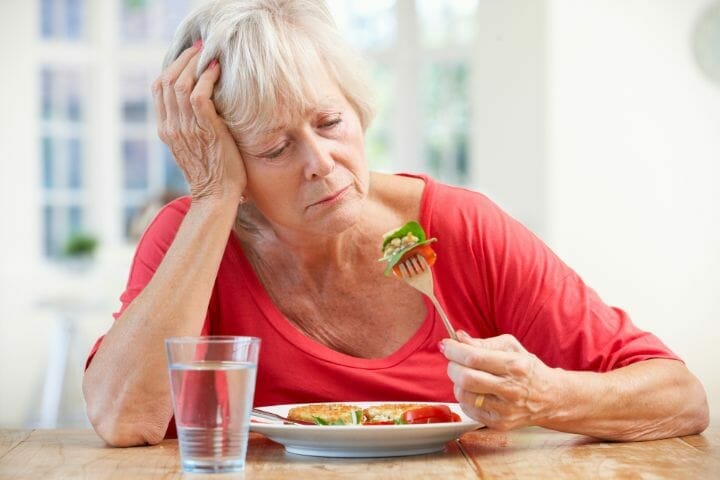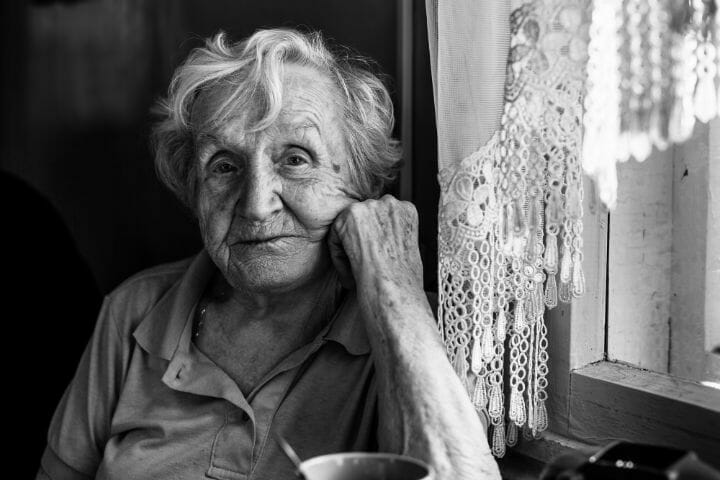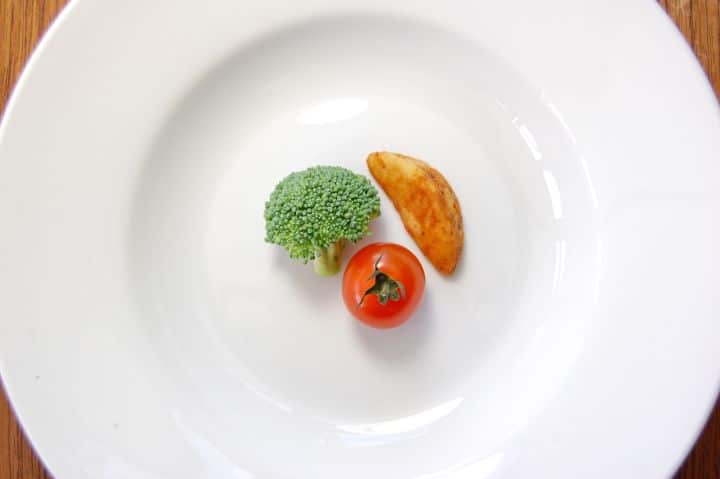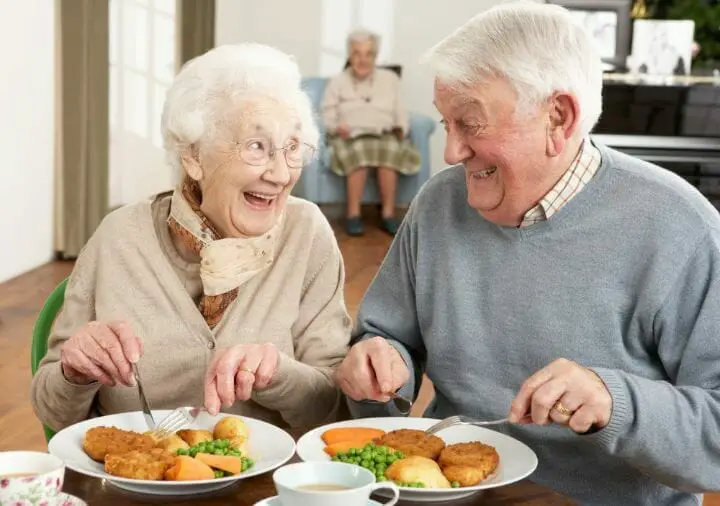A question that often comes to us in our comments section is: “How to increase elderly appetite?”. It is important for elderly to take a balanced, nutritional and filling meal. We discuss ways to increase elderly appetite in our article below.
Contents
One of the serious and common problems we come across in older people is Poor Appetite. It can bring deficiencies in nutrition, resulting in the loss of weight, leading to increased mortality and poor health. You can commonly see this in the elders who live at home with family or at elderly care facilities or hospitals.
In the article, we talk about the appetite loss causes in the elderly, ways to combat it, and also address its effects.
Causes of Appetite Loss in the Elderly
It is nothing unusual or shameful to lose the Appetite when people grow old. Around 15% to 30% of the elderly are experiencing it, higher rates in those who are hospitalized, staying at nursing homes, or women, and this increases with age.
Major changes happen as we grow older, and they can be the reason for the loss of Appetite. Some of them are:
- Chronic diseases, change in medication, or acute illness.
- Physiology changes in the body.
- Social circumstances, psychological functioning change.
You may also like How Long Can You Live Without Food and Water With Dementia
Physiological changes in the body causing loss of Appetite
Let us see common physiological changes which can cause a reduced appetite. These include changes in the senses like vision, taste, smell, decrease in energy need, pain, disease, digestive system changes. It is also because hormone level changes which play a major role in controlling the Appetite.
Changes in the Digestive System which can Cause Declining Appetite
Emptying of gastric happens slowly in the elderly. As a result of this, food will remain in the stomach for a longer duration. It will reduce the Appetite and prolong the satiation.
Constipation is one of the reasons for declining Appetite. Around 30%-40% elderly face this issue. 50% of nursing residents complain of having chronic constipation.
You may also like Best Brain Supplements for Elderly
Relation of Sensory Impairment to Appetite
Vision, smell, and taste play a significant role in determining how one enjoys food. Any impairment to these senses will result in reduced Appetite.
The taste will promote how a person enjoys the food, and smell and vision will stimulate appetite while eating. The elderly face issues with taste, vision, and smell and give them the worst Appetite.
Out of five people above 75 years of age, one older adult faces visual impairment, and out of two who are 90 years old, one encounters the loss of sight.
Dental and Oral Health
Older adults may have poor dentition and loss of teeth. Difficulty in chewing and wearing dentures has a huge impact on Appetite loss. Oral health is poor in the elderly, and it reduces the sense of taste, contributing to Loss of Appetite.
One-third of 65 years old face issues like reduced production of saliva, which causes difficulties while eating, impairing Appetite.
Reduced production of saliva is because of medication and is not because of normal aging.
Acute Illness and Chronic Pain
Appetite tends to decline acutely in response to acute illness, especially acute infection, which induces cytokine production that may substantially impair Appetite.
Some chronic diseases which worsen Appetite include cardiac failure, chronic obstructive pulmonary disease, renal failure, chronic liver disease, Parkinson’s disease, and cancer. Note that all of these conditions are more prevalent in older people.
Chronic disease will impair Appetite through pain and impaired dexterity. Impaired dexterity will interfere with the eating process, and food takes longer to eat and may go cold, reducing the Appetite usually stimulated during eating.
Chronic pain has an association with poor Appetite, and as many as half of all community-dwelling elderly people suffer from chronic pain, this may contribute significantly to the loss of Appetite in older people.
You may also like Best Probiotics for Lactose Intolerance
Low Energy needs
The energy needs of an individual are basically determined by two factors.
- Their body composition, especially the fat-free mass (all the body components that are not fat, including muscle, bones, and organs).
- Their levels of physical activity.
Most of the elderly are not physically active, and they will lose fat-free mass usually; while the age is increasing, there will be loss of skeletal muscle at a 1% rate per year, approximately in the 70s. Hence the energy requirements of older people are low, contributing to Loss of Appetite. The needs of the elderly vary between individuals, thus reflecting differences in their levels of physical activity and body composition.
Low Eating and its Effects
The loss of appetite will lead to reduced nutrient and food intake, which will increase the nutritional deficiencies and the risk of weight loss. Loss of Appetite can be because of acute illness. If you detect this reduced Appetite before nutritional deficiency and weight loss will help in intervening at the first stage, thus helping to prevent the health decline.
Weight loss and Nutritional deficiencies have severe consequences for the elderly, such as fractures, being prone to fall, frailty, muscle weakness, osteomalacia, and a high risk of osteoporosis, which will take longer to heal.
It will weaken the immune system, thus leaving you susceptible to infections and increasing the risk of you being deficient in nutrients such as minerals and vitamins. Also, it is hard for the elderly to regain the lost weight.
If you are a person who has lost weight or is underweight for no reason, then see the GP for ensuring that there is no underlying cause for this loss of weight. It is serious for the elderly if they are underweight. It will increase health issues, may result in fractures when they fall, and it will affect their life quality.
In what ways can you combat Low Appetite
The elderly lose Appetite even if they are in good health. This may be because they are underweight as they are not eating the correct quantity, and there are no calories in their diet.
Taking some measures for improving the diet will increase the energy levels and give you the nutrients you require.
You may also like What Causes High Potassium Levels In Elderly?
How To Start Eating In case You Have Lost The Appetite?
You can see the decrease in the Appetite as you grow old, and it is then you will not feel like eating. Even if you are old, you still have to get nutrients and energy in your body. It is essential if you are underweight when you are old to eat well.
You can do this in three ways:
- By having frequent snacks and small meals rather than eating three large meals in a day.
- You have to increase your intake of calories.
- You have to limit the consumption of foods with high-fat saturation or trans fats, for example, biscuits, cakes, and fizzy drinks.
Use these tips to boost the intake of calories.
1. Try the following healthy and high-energy snack and meal ideas:
- Making porridge with whole milk, add dry fruits or fruits on top
- Add Sardines on the toast.
- Healthy beans or Peanut butter on toast and sprinkle cheese on the top
- Shakes or smoothies with nuts
- Soups with meats, pasta, or pulses
- Shepherd’s/cottage pie
- take Milky drinks as a snack at bedtime
- Eat some Unsalted nuts.
2. Add foods that have more calories making your diet healthy helping you gain weight:
- Sprinkle grated cheese on the savory dishes
- Add milk or cheese to soups
- Spread avocado on the toast to make it a healthy and a high-energy snack
- Add white sauce (made with milk, flour, and butter ) on vegetables or fish
- Take warm milk (full-fat) instead of coffee or tea
- Add butter or milk into the mashed potato
You may also like Best Zinc Supplements For Seniors
3. Eat with family and friends
If you have no motivation to fight hard for food or eat it alone, plan to eat with family and friends. Eating together with family and friends will help in promoting healthy eating, socializing, and reconnecting. If you are looking for socializing, lunch clubs are also a great way to have a good mealtime.
If it is hard for you to make foods, use the below tips:
- Pick the meals that have less salt. It is hard to find a nutritionally balanced–ready meal. Read the food labels when you want to pick a healthy meal.
- Get some dry fruits and tinned food at home. These serve as an alternative to fresh fruits, which require no preparation, and it will count to yours 5 A Day. The tinned fruits are easy to eat in case you have any dental problems.
- Get some canned and frozen vegetables and keep them at home. They make it easy to prepare, and you can count to yours 5 A Day.
- Buy snacks and puddings which come as individual pots, such as rice puddings and yogurt.
- Supplement or Replace your meal with one high-calorie drink.
- You can also improve your Appetite by exercising: Doing Physical activity is very important for older people. This will help in keeping you independent, mobile, and stay healthy.
- To keep your heart healthy and keep it away from stroke and diseases, you have to keep yourself active. Being more active will increase your hunger levels.
- Find some meal delivery services nearby and get your meals delivered at home if you cannot make food for yourself.




